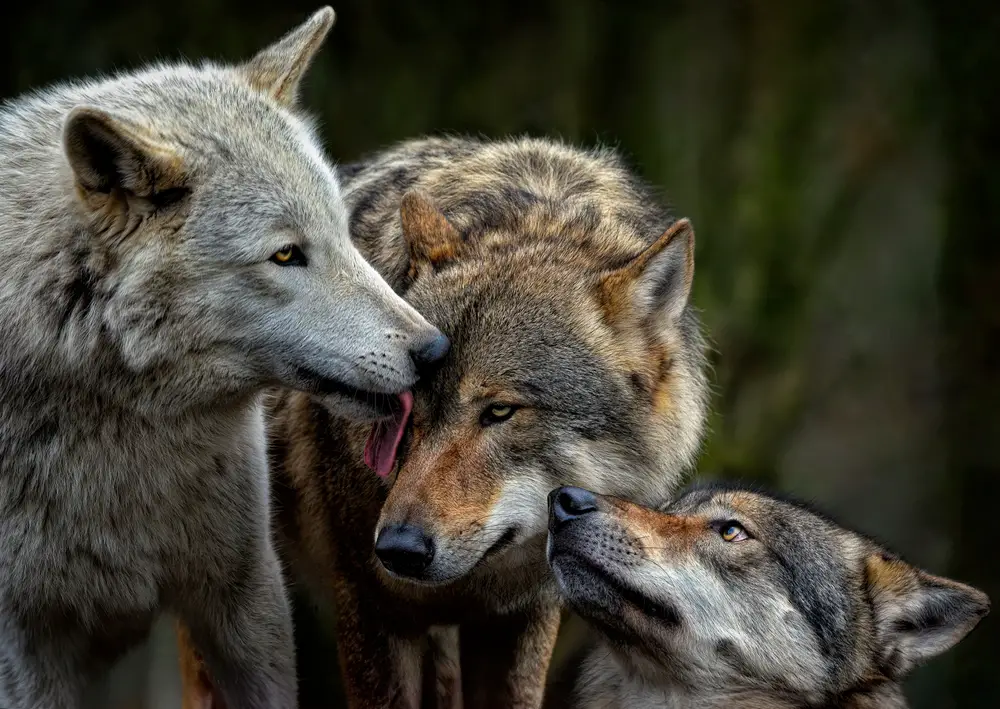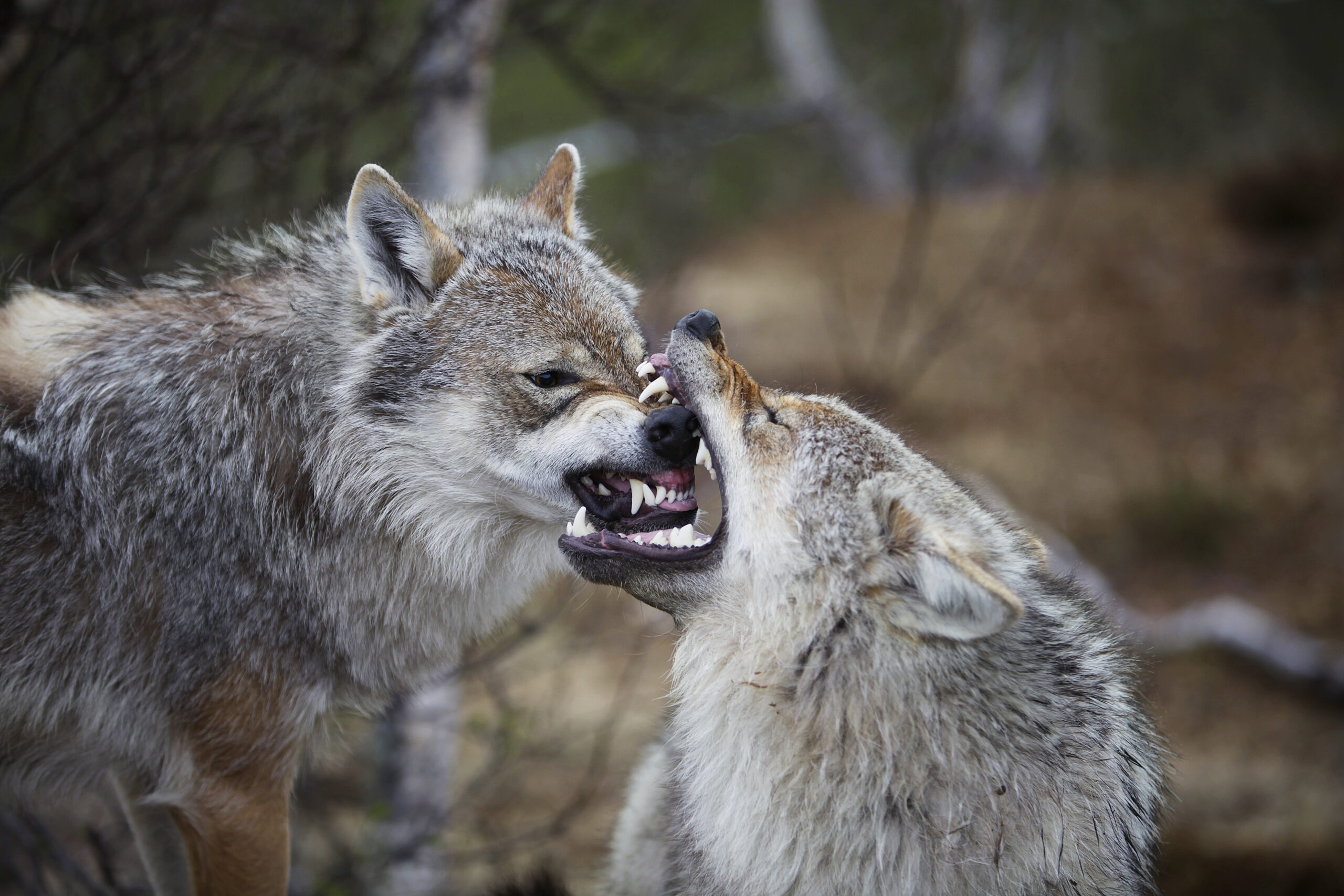Divorce is an emotional crucible that can bring out both the best and worst in people. In the upheaval, couples often behave like pack animals—instinctively protecting their own, finding allegiances, and sometimes, operating in sheer survival mode. These primal behaviors, while understandable, can complicate an already complex process. Recognizing these patterns can provide insight and perhaps a little compassion for yourself and others as you navigate the wild terrain of separation.
1. They Rally The Troops

When you’re going through a divorce, there’s an almost primal urge to gather your allies. You instinctively lean on friends and family who can offer emotional support and validation. This is about assembling your pack, reinforcing that you’re not alone in this battle. A study published in the Journal of Marriage and Family found that social support is crucial for managing the psychological impacts of divorce, underscoring the importance of these alliances.
However, there’s a fine line between seeking support and creating an echo chamber. When your tribe only echoes your perspective, it can make the divorce feel more contentious, feeding the conflict rather than soothing it. The key is balance—find those who offer empathy but also gently challenge you. The goal isn’t to win a war but to emerge whole on the other side, with your dignity and humanity intact.
2. They Mark Their Territory

As the dissolution of a marriage unfolds, the instinct to mark what’s yours can become overwhelming. This often translates into fierce negotiations over shared assets, homes, and even mutual friends. It’s not just about material possessions; it’s a way to assert control amidst the chaos. This territorial impulse can lead to intense disputes that may seem more about principle than practicality.
Yet, this behavior is rooted in a deep-seated need for stability and identity. The loss of a shared life disrupts your sense of self, making it vital to reclaim your own space—literally and metaphorically. But, in the quest to establish boundaries, consider the future relationship with your former partner, especially if children are involved. Cooperation now can make for a less contentious co-parenting dynamic later.
3. They Form Alliances

In the animal kingdom, forming alliances is essential for survival, and divorce is no different. You might find yourself forging unexpected bonds with your ex’s family or mutual friends who remain neutral. These alliances can provide a sense of continuity, maintaining connections to parts of your life that feel stable. Research by sociologist Robert Emery highlights that maintaining relationships with in-laws can be crucial for one’s emotional health post-divorce.
Yet, navigating these alliances requires finesse and respect for boundaries. It’s essential to ensure these relationships don’t become battlegrounds for loyalty. They should be about genuine connection, not leverage or spite. Remember, the goal is to heal and move forward, not to anchor yourself in past dynamics.
4. They Display Heightened Vigilance

Just like a wolf on high alert, divorce can put you in a state of heightened vigilance. You’re constantly scanning for threats, whether it’s a legal maneuver you didn’t expect or an emotional ambush in a seemingly innocuous conversation. This hyper-awareness is a protective mechanism, an evolutionary response to uncertainty and perceived danger.
However, staying in such a heightened state is exhausting and unsustainable. It can lead to anxiety, sleeplessness, and a perpetual cycle of stress. Recognizing these patterns can be the first step towards managing them. Finding moments of calm and allowing yourself to step out of survival mode is essential for both your mental and physical health.
5. They Adopt A Scarcity Mentality

Divorce can trigger a scarcity mentality, where you feel compelled to grab and hold onto everything you can. This mindset can transform negotiations into a zero-sum game, each side vying for a larger slice of the pie. This behavior stems from fear and insecurity, as the future feels uncertain and resources seem finite. Psychologist Susan Johnson emphasizes that during divorce, it’s crucial to differentiate between needs and wants to avoid this trap.
Shifting from a scarcity to an abundance mindset can open up possibilities for resolution and compromise. It’s about trusting that there will be enough for you on the other side of this process. By approaching negotiations with a spirit of collaboration rather than competition, you can often find solutions that work for everyone. It’s about investing in the future, not just dividing the past.
6. They Start Emotional Hoarding

In times of upheaval, hoarding emotions can feel like the safest bet. You might bury feelings of sadness, betrayal, or anger, bottling them up to maintain a semblance of control. This emotional stockpiling is a way to shield yourself from vulnerability, akin to hoarding food in times of famine. The irony is that this behavior often leads to emotional constipation, making it harder to process your experience.
Releasing these pent-up feelings is crucial for healing. It’s about finding healthy outlets, whether through therapy, journaling, or talking with trusted friends. Allow yourself to feel without judgment, recognizing that these emotions are valid and part of the journey. Only by facing your feelings can you begin to move through them.
7. They Display Dominance

Like the alpha wolf asserting its dominance, you may feel compelled to show strength during a divorce. This might manifest as taking a hard line in negotiations or projecting an air of confidence that belies your inner turmoil. A study in the Journal of Personality and Social Psychology suggests that displaying dominance can often be a cover for underlying insecurity.
Despite this instinct, vulnerability and openness are often more powerful. They allow for real conversations and understanding, which are critical for resolving conflicts. Letting go of the need to dominate can pave the way for more authentic interactions. Being strong doesn’t mean being inflexible; it means being true to yourself, even in difficult circumstances.
8. They Retreat To Safety

At the heart of the matter, the urge to retreat into your own space is potent. Much like animals retreating to their dens for safety, you might find solace in solitude. This withdrawal is a chance to recharge and process your emotions without outside influence. Carving out this personal space is an essential part of self-care during a time when your world feels turned upside down.
However, isolation can also prolong the healing process if it becomes a means of avoiding reality. It’s important to balance solitude with social interaction. Engaging with others can offer new perspectives and remind you that you’re part of a larger community. Finding the right balance between time alone and with others can support your emotional well-being.
9. They Use Grooming As A Form Of Support

In many animal groups, grooming is a way of reinforcing social bonds and offering comfort. Humans, too, seek nurturing and care from those they trust during divorce. Whether it’s a friend offering a listening ear or a family member providing a shoulder to cry on, these acts of care help soothe emotional wounds. This grooming isn’t just physical; it’s emotional, nourishing your spirit during a tumultuous time.
Yet, it’s important to ensure you don’t rely too heavily on others for emotional support. Maintaining your own sense of independence and strength is crucial. Allow others to help, but also find ways to support yourself. Self-care, in all its forms, is a vital component of your healing journey.
10. They Test Boundaries

During a divorce, testing boundaries can become a recurring theme. This might involve pushing the limits in negotiations or exploring new personal boundaries in the wake of newfound independence. It’s a way of asserting your autonomy and rediscovering who you are outside the bounds of the relationship. These actions can lead to personal growth and a clearer sense of self.
However, it’s important to be mindful of how these actions affect others. Testing boundaries should not become a means of inflicting emotional pain or creating unnecessary conflict. Approach these explorations with empathy and respect, both for yourself and others. Boundaries are there to protect, not to isolate.
11. They Seek Validation From Their Tribe

Amid a divorce, seeking validation from others can become a lifeline. You may turn to friends, family, or even social media to affirm your feelings and decisions. This external validation is a way of reinforcing your sense of self-worth and combating the self-doubt that often accompanies major life changes. It’s natural to crave reassurance that you’re on the right path.
Yet, relying solely on external validation can be limiting. True confidence comes from within, cultivated through self-reflection and acceptance. Use external validation as a support, not a crutch. Trusting yourself and your ability to navigate this challenging time is essential for your growth and healing.
12. They Display Aggression

Divorce can sometimes bring out aggression, much like animals defending their territory. This might manifest in angry outbursts or confrontational tactics during negotiations. These aggressive displays are often rooted in fear and frustration, a way of asserting control when everything feels uncertain. Yet, this behavior can escalate conflicts, making resolution more difficult.
Finding healthier outlets for these emotions can prevent aggression from taking over. Exercise, meditation, or creative pursuits can help channel your energy in positive ways. Recognizing and naming your emotions, rather than acting them out, can also be empowering. It’s about finding constructive ways to express yourself and move towards resolution.
13. They Build New Tribes

As you navigate life post-divorce, you may find yourself building new tribes or communities. This could involve forming friendships with other divorced individuals or joining new social groups. These new tribes offer a sense of belonging and understanding, providing support as you rebuild your life. They can also introduce you to new perspectives and experiences.
Yet, it’s important to remain open to diverse connections. Don’t limit yourself to only those who share your experiences. Embrace a wide range of relationships that enrich your life in different ways. Building a varied support network can offer more nuanced insights and foster personal growth.
14. They Embrace Their Vulnerability

Divorce can be an opportunity to embrace vulnerability, much like animals showing their softer side in moments of trust. Being open about your emotions and experiences can foster deeper connections with others. It allows you to process your feelings honestly and authentically, paving the way for healing. Vulnerability can be a source of strength, revealing your true self in the face of adversity.
Yet, it requires courage to let down your guard. It’s about finding safe spaces and people with whom you can share your journey. Embrace vulnerability as a means of growth, not as a sign of weakness. In doing so, you can discover resilience and a deeper understanding of yourself.
15. They Navigate Uncharted Territory

Going through a divorce is like navigating uncharted territory. You’re exploring a new landscape of emotions, responsibilities, and possibilities. This journey requires adaptability and an open mind, much like animals venturing into unfamiliar environments. Embracing this process as an opportunity for reinvention can be empowering.
Yet, it’s natural to feel apprehensive about the unknown. Trust yourself to find your way, even if the path isn’t always clear. Seek guidance from those who have walked similar paths, but also trust your instincts. This is your journey, and every step you take is a testament to your strength and resilience.
